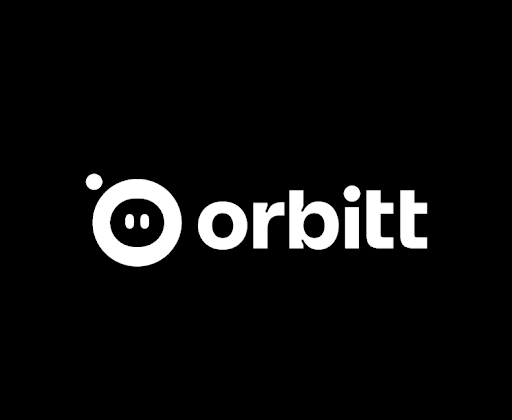Telegram becomes a full launchpad with Orbitt 2.0
Disclosure: This article does not represent investment advice. The content and materials featured on this page are for educational purposes only.
Token launches are now even simpler. Learn how one Telegram bot combines creation, liquidity, and visibility, without developers, dashboards, or centralized exchanges.
Table of Contents
- Why are token launches still so complicated?
- Orbitt 2.0: Bundled tools with Telegram UX
- What users don’t need anymore
- Why Telegram?
- Conclusion: Simplifying the first step
Launching a new token is sometimes more difficult than it should be. Founders wrangle online dashboards, bespoke scripts, and tokenomics spreadsheets simply to get their project started. Next comes liquidity provisioning. Then consider a volume campaign. Then pitch to aggregators or hope for trending status.
What if all of that friction could be eliminated with a single tool, in one place?
That’s what a new wave of Telegram-based platforms is beginning to provide. Among them, Orbitt 2.0 stands out for combining coin production, liquidity tools, and DexScreener deployment in a single Telegram bot. No further tabs. No development operations. There are no hidden costs.
Why are token launches still so complicated?
Even with dozens of launchpads available, most early-stage cryptocurrency businesses continue to confront significant challenges.
- Development-intensive methods for token generation
- Confusing user experience across liquidity tools.
- Manual lobbying to get listed or noticed.
Web-based launchpads address some of these issues, but also have drawbacks, such as lengthy onboarding, restricted customisation, and hefty platform costs. Centralized exchanges may provide exposure, but at the expense of independence and flexibility.
Moving quickly and keeping costs low are especially important for Solana initiatives. And that’s where Telegram-native tools come in, they streamline everything into a guided procedure that can frequently be accessed in under five minutes.
Orbitt 2.0: Bundled tools with Telegram UX
Orbitt 2.0 is essentially a launch operating system incorporated into Telegram. From the time users open the bot, they may manage every important milestone of a launch:
- Mint a personalized token with the logo, supply, and symbol.
- Launch a Raydium liquidity pool with their own SOL.
- Start simulating volume with up to 10,000 autonomous wallets.
- Set DexScreener trending visibility based on activities.
Every stage is integrated. Users are not copying contract addresses across tabs or waiting for manual approvals. They simply follow a set of recommended alternatives, no need to pay a minting fee, and go live. There is no upfront payment, only a tiny percentage fee for volume boosting
Using Orbitt’s Private Pool, users may quietly snipe tokens with 50 wallets. Bots increase volume by moving their tokens across thousands of wallets. When they’re ready to sell, they can use the trading panel or automatic market maker.
For projects without technical cofounders or huge funds, this saves weeks of setup and coordination. It also allows users to focus on narrative, community building, or the product itself, rather than debugging a liquidity script.

What users don’t need anymore
Orbitt eliminates the need for the following tasks:
- Hire a developer simply to create a token contract.
- Pay third companies to establish liquidity pool.
- Spend hours testing bot activity using various tools.
- Wait days till someone adds users’ token to DexScreener.
Owners are in control, funds are still in their wallets, and equipment is ready 24/7. Functions that are even more complex (like volume modeling using snipe supply or bot merging/splitting) can be used with just a few button clicks.
The given tool is a revolution in implementing web3 products into the market. It is no longer the concern who has the most resources. It is a matter of who can go lean, fast, and smart.
Why Telegram?
Many crypto projects use Telegram for communication. Now, it is also being used to launch new tokens.
Because bots provide a seamless experience, no logins, no dApp permissions, no browser issues. Non-technical users can enjoy the same information accessed through the phone itself.
Orbitt 2.0 is adding to this trend through its fully integrated mobile-friendly launch system. Simplicity is not the only thing; it is also about consistency with how cryptocurrency is already used at the current stage.
Conclusion: Simplifying the first step
Launching a token is not the only stage, but often it is the scariest one. Orbitt 2.0 makes this process easier by combining three of its steps: token generation, liquidity, and visibility enhancement, all in one place: Telegram.
By removing the noise, the platform provides entrepreneurs with more time, reduced expenses, and fewer headaches, all without sacrificing functionality. There is continued debate about the ethics behind volume simulation, but the internal plumbing of Orbitt is proving to be very valuable in high-speed, self-governing teams.
Whether users are creating a meme currency, utility token, or testing market ideas, this new set of tools makes the process seem manageable, and even enjoyable.
Disclosure: This content is provided by a third party. Neither crypto.news nor the author of this article endorses any product mentioned on this page. Users should conduct their own research before taking any action related to the company.
You May Also Like

U.S. DOJ Closes Polymarket Case – $2.6B Prediction Market Eyes Imminent U.S. Return

Ethereum Foundation to Reorganize Ecosystem Development Team to Focus on Four Key Areas
